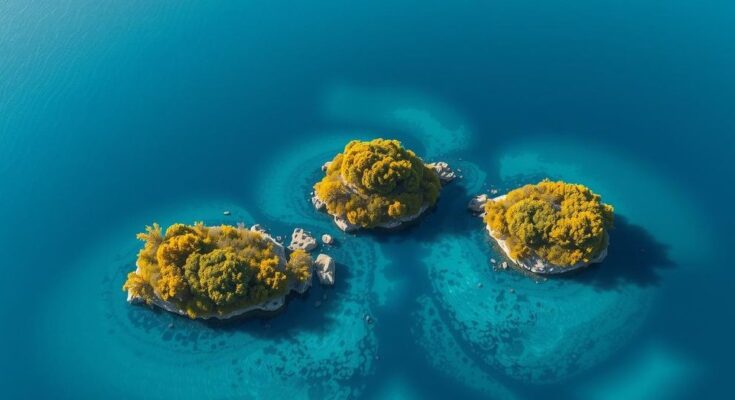The International Court of Justice ruled that Mbanie, Conga, and Cocoteros islands belong to Equatorial Guinea. The decision ends a long-lasting dispute with Gabon, which had claimed sovereignty based on a disputed 1974 treaty. Gabonese troops will need to leave Mbanie as a result of the ruling.
The International Court of Justice (ICJ) has decided that Mbanie, Conga, and Cocoteros islands, located off the coast of Gabon, are officially under the sovereignty of Equatorial Guinea. This ruling, which was announced on Monday, has put an end to a long-standing dispute between the two countries that has lasted for decades. These small, largely uninhabited islands lie in waters believed to be rich in oil and gas resources, and their ownership has been contentious since Gabon took control in 1972 after its military forced Equatorial Guinean soldiers off Mbanie.
Gabon previously claimed ownership based on a treaty from 1974, referred to as the Bata Convention. The honorary president of Gabon’s Constitutional Court, Marie-Madeleine Mborantsuo, argued that this document definitively resolves sovereignty issues concerning these islands. Mborantsuo stated that the treaty ensured Gabon’s claim to the islands and provided clarity on the border delimitation.
Conversely, Equatorial Guinea has dismissed Gabon’s claims, consistently demanding an original copy of the Bata Convention, which Gabon has not been able to produce. Domingo Mba Esono, Equatorial Guinea’s vice-minister of mines and hydrocarbons, emphasized in court that the treaty was not widely known or acknowledged. He said, “No one had seen or heard of this supposed convention,” pointing out that the only document Gabon could offer was an unauthenticated photocopy.
Philippe Sands, a lawyer representing Equatorial Guinea, went a step further by labeling the alleged Bata Convention as “scraps of paper.” He argued that it was unreasonable for Gabon to rely on a photocopy of an unavailable document, stating that Equatorial Guinea had no obligation to accept Gabon’s claim.
Ultimately, the ICJ ruled against Gabon, stating that the Bata Convention is not legally binding. In making its decision, the court pointed to a treaty signed in 1900 that divided French and Spanish colonial territories in the area. This treaty assigned the islands to Spain and stipulated that upon Equatorial Guinea gaining independence in 1968, the islands would come under its sovereignty.
The court clearly articulated its stance: “The title that has force of law in so far as it concerns sovereignty … is the title held by the Kingdom of Spain until October 12, 1968, to which the Republic of Equatorial Guinea succeeded.” Gabon’s Mborantsuo lamented the loss, noting the difficulties that arose due to poor archival management, worsened by “unfavorable climate, a lack of trained personnel, and lack of technology.”
In light of this ruling, Gabonese troops will be required to withdraw from Mbanie, a minor but significant territory in this legal battle, which extends just about a kilometer in length. It’s been a diplomatic back and forth, but this court ruling marks a decisive moment in the relationship between these neighboring West African nations ranging from disputes to potential cooperation over shared resources.
In summary, the ICJ has ruled that Mbanie, Conga, and Cocoteros islands belong to Equatorial Guinea, effectively nullifying Gabon’s claim based on the disputed Bata Convention. This ruling underscores the legal complexities surrounding colonial-era treaties, while Gabon is set to withdraw its military presence on the islands. The outcome of the case may influence future diplomatic relations and resource management between the two nations.
Original Source: www.dw.com




